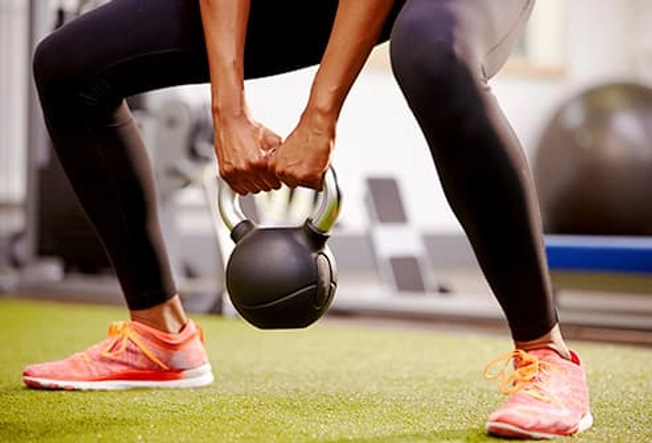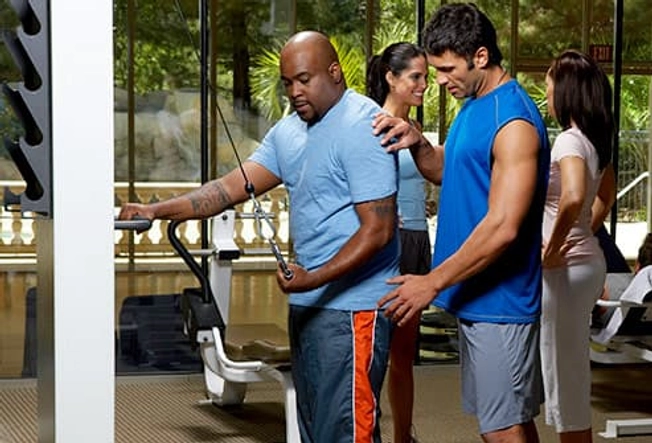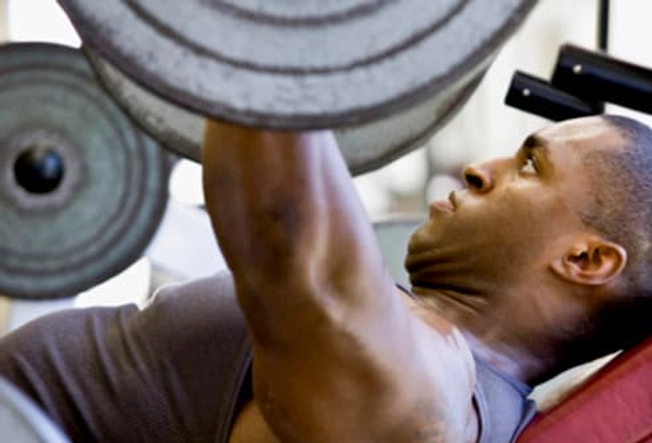Fitness Mistakes That Can Sabotage Your Workout


Just Do It … Right
Exercise can help your physical, mental, and emotional health, give you more energy, and even be a boost for your social and sex lives. Experts recommend 30 minutes a day, 5 days a week. But watch out for a few pitfalls that can make you do more harm than good.

You Bail Out
Skipping workouts “just because” can set you back, especially if you’re on an exercise program. Not only does it make it harder for you to reach your goals, but you also can lose some of the progress you’ve made.

You Have a Meal Right Before
If you eat a meal within 2 hours before working out, your body will be digesting that food, and blood won’t flow as well to your muscles. That can affect your post-workout recovery and lead to cramps and nausea. Instead, try a light snack like peanut butter and a banana, Greek yogurt and berries, oatmeal, or a handful of nuts or raisins.

You Don’t Warm Up
Starting your workout without warming up may save a few minutes, but it isn’t a good idea. Your body needs the warmup to raise your body temperature and get your blood flowing, to help loosen up your muscles and give you more range of motion. It can be something as simple as light walking, jogging, or biking for 5 to 10 minutes. Be careful not to stretch before warming up.

You Bounce When You Stretch
You’re more likely to hurt your muscles or make them tighter if you move around when you stretch. Hold each one steady for 20 to 30 seconds. There is a type called ballistic stretching that calls for bouncing, but you shouldn’t try it without working with a professional trainer or coach first.

You Don’t Have Good Posture
This can limit your progress and could lead to a fall or an injury. For example, be careful not to lean on equipment, like a treadmill, while you’re using it. And if you’re lifting weights, try to keep your back straight and your shoulders back and relaxed. Don’t lock your knees, either.

You Hold Your Breath
You might do this without even knowing it. But it’s important to pay attention to your breathing. Holding your breath limits the amount of oxygen coming into your body. If you hold it too long, you might pass out. When you’re lifting heavy weights, take a deep breath before you start a set, then gradually let it out as you go.

You Slack On Your Form
This can keep you from targeting the right areas and limit your range of motion. It can actually make you weaker and damage your muscles. Use lighter weights and perfect your form before moving on to the heavier stuff.

You Stray From Your Plan
If you’re just starting out, you may be tempted to try too many things too quickly. You can get overwhelmed and do too much. Set goals and know which muscle groups you want to target before you start your workout.

You Ignore Your Limitations
Don’t try to lift more weight than you can handle. You can get hurt, and it can mess up your technique. When you do go for more weight, add only a little at a time and get comfortable with it before going further.

You’re Too Competitive
It’s natural to want to compare yourself with others, but don’t change your workout, or try to lift too much to keep up with someone else. You don’t know their experience or skill level, so it’s best to stay within your limits and focus on your goals.

You Socialize Too Much
While the gym is a good place to meet people, talking while you work out may not be a good idea. It’s best to concentrate on what you’re doing and keep chats between sets or between exercises short. There’s plenty of time for that before or after the session. On the other hand, if you can hold a normal conversation while working out, you're probably not overdoing it.

You Go Heavy All the Time
Even if you’ve set a goal of getting stronger, you should mix things up -- do more reps with lighter weight and fewer reps with moderate or heavy weight. Training with heavy weights every time you work out can actually keep you from adding muscle and raise your chance of injury. You might vary your workouts with moderate-, heavy-, and light-weight days.

You Only Do What You Like
You may like some exercises better than others -- probably the ones you’re best at -- but you need to work all muscle groups. Targeting the same ones all the time can make it hard for them to recover. Try to focus on different spots and develop each of them.

You Don’t Take Water Breaks
Staying hydrated is important for cooling off your body and keeping your blood flowing. Drink water before your workout, then 6 to 8 ounces for every 15 minutes you’re active, then some more once you’re done.

You Don’t Know When to Stop
You may have heard the saying “No pain, no gain,” but serious pain can mean you’re using too much weight or it’s time to stop. Pushing through can lead to injury. If you’re starting out, it’s normal to have some soreness for a day or so after working out. If it lasts longer, it probably means you should cut back.

You Don't Cool Down
Once you finish, you should ease out with some mild stretching. This can help get your heart rate, blood pressure, and breathing back to normal levels. Stretching your muscles while they’re warm and blood is flowing to them may also help them lengthen and stretch more easily.
